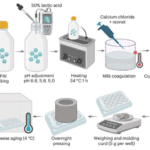In a discovery, scientists have identified a new genetic form of diabetes in babies—a rare but revealing insight into how our DNA shapes insulin production.
Researchers from the University of Exeter Medical School and Université Libre de Bruxelles (ULB) have traced this unique type of neonatal diabetes to mutations in the TMEM167A gene—marking it as a new player in the complex story of diabetes.
👶 When Diabetes Begins Too Early
Most people associate diabetes with adults, but some babies develop it before six months of age. In more than 85% of such cases, the cause lies in their genes.
In this study, six infants—all showing diabetes and additional neurological symptoms like epilepsy and microcephaly—were found to carry mutations in TMEM167A, a gene previously not linked to insulin function.
🔬 How the Discovery Was Made
To explore the gene’s role, researchers used stem cells and CRISPR gene-editing technology to model the mutation in lab-grown pancreatic beta cells.
Here’s what they found:
- Mutated TMEM167A genes caused beta-cell dysfunction, preventing the cells from producing and secreting insulin properly.
- The cells triggered internal stress mechanisms that led to their death.
- TMEM167A is crucial not only for insulin-producing cells but also for neurons, which explains the neurological symptoms observed in affected children.
🧠 Why This Matters
This discovery does more than explain a rare form of diabetes—it deepens our understanding of insulin biology itself.
By identifying a gene essential for beta-cell survival, researchers can now explore new treatments for both neonatal and adult diabetes.
It also highlights how stem cell models and gene editing are revolutionizing disease research—helping scientists study disorders once considered untouchable.
🇮🇳 What It Means for Doctors in India
India has one of the world’s highest burdens of diabetes, and early-onset cases are increasing. Discoveries like this open new doors for:
- Genetic testing in pediatric diabetes cases.
- Personalized treatment strategies based on underlying molecular mechanisms.
- Better understanding of beta-cell preservation, a key focus in type 1 and type 2 diabetes management.
🚀 How Doctors Inside The Doctorpreneur Academy Are Getting Future-Ready
At The Doctorpreneur Academy, doctors are not just treating diseases—they’re learning to decode them through digital innovation and science communication.
- Members stay updated on cutting-edge global research.
- They translate complex scientific discoveries into simple, patient-friendly education.
- They’re developing a digital presence that positions them as informed, credible voices in modern healthcare.
By merging clinical expertise with science awareness, Doctorpreneur Academy doctors are redefining medical leadership in the digital age.
💡 Final Takeaway
The discovery of the TMEM167A gene’s role in baby diabetes is more than a medical breakthrough—it’s a glimpse into the future of precision medicine.
It reminds us that even the rarest cases can teach us universal lessons about the human body. For doctors, staying curious and informed is no longer optional—it’s essential.
Inside The Doctorpreneur Academy, doctors are already embracing this future—where genetics, technology, and compassion come together to change lives.
👉 Doctor’s Action Step:
Next time you treat a young diabetic patient, consider the genetic angle—because every rare case could hold the key to a discovery.
👉 To register for our next masterclass, please click here: https://linktr.ee/docpreneur




